Melissa Harkin
Early morning on Friday, March 24, 2017. I pack my stuff and hit the road with former Brazilian Olympic athlete and long-time translator Élora Ugo and newbie translator Bruna Picker.
We are headed to Overland Park, Kansas, to attend the 2017 Annual Conference of the Mid-America Chapter of the American Translators Association (MICATA). Never having attended a regional conference before, all three of us are unsure what to expect.
We drive through Missouri’s lavender fields and corn and soy farms—a beautiful view along the road—and arrive just in time for the welcome reception at Johnson County Community College.
A reception is always a great way to start a conference. The camaraderie and networking make you feel less of a stranger the next day when sessions begin. I make some great connections and meet wonderful new people, such as Marcela Renna, Hamideh Gerami, and Amy Randles; get hit by the unexpected (such as Dr. Jason Jolley, an associate professor of Spanish at Missouri State University in Springfield, who is also fully fluent in Portuguese, and who surprises Élora, Bruna, and me by approaching us with a big “Oi! Vocês estão falando português?” which is Portuguese for “Hi! Are you speaking Portuguese?”); and catch up with friends and colleagues I’ve met through the years while attending other conferences and following them online (Hi, Karen Tkaczyk and Abigail Dahlberg!).
A lot of work goes into putting a conference together, and, after attending MICATA’s conference, I will try to go to as many other regional conferences as possible. Of course, the ATA national conference is and always will be a must-go event, but regional events also provide you with growth, learning, and networking opportunities. It’s a big mistake to completely disregard them and not support your regional ATA chapter.
Just like any other conference, MICATA has multiple sessions happening at the same time; I want to attend them all, but time traveling isn’t a thing yet, so I have to pick and choose the ones that best fit my interests, learning desires, and this point in my career.
We all start with a plenary session by Karen Tkaczyk on Professionalizing: Find your Place in the Industry. What I find especially interesting are all the examples from personal experience she gives us, showing the crowd the similarities within diversity that can be found among translators.
While Bruna attends Starting Up Your Own Business, by Jeana Clark, Élora and I hit the ATA Certification Exam Preparation, presented by Rudy Heller and Diego Mansilla. Afterwards, Bruna mentions that her session was great and that she left it having a clearer idea of some of the next steps in her career. Élora and I report that the overview of the ATA Certification Program was excellent. It became much more obvious to us why it is a good idea to seek ATA certification, and we left knowing how exams are graded, what graders look for (and what they’d rather not see), and many other details about the exam.
Next, I head to Planning Effective Translator Training, by Dr. Jason Jolley. He guides us in a discussion to outline what an effective competency-based program in translation should look like. It is quite interesting to see the perspective of educators rather than students. The fact that he discusses competency-based programs is valuable to everyone present because, as we all know, not every translator has a degree in linguistics. Some become translators later in life, after retiring, or after realizing they have a passion for writing and for the languages they speak.
At lunch, we are all gifted with Angela Tamae Liu’s fun and loving personality while she shares her knowledge and experiences with translation. What a great presentation! She speaks specifically about Differences in Anime and Manga Translation. The heavy historical and cultural load behind every story makes me want to learn more about this type of translation.
I then accompany Bruna and Élora to the session Getting Started in the T&I Industry, by Gabby Doherty and Jean Marie Trujillo. Since I’ve been trying to guide Bruna in the past few months, I feel it is important to attend this session with her so we can discuss the content afterward. Other reasons for attending sessions about getting started are to learn about paths other translators have taken when starting in the profession, and to check out new info and trends. Not every translator is keen to attend such sessions, but I highly recommend they do so. Even if you think you know it all, you’ll always come out with new knowledge.
I end my day attending Karen Tkaczyk‘s second session, A Lucrative Sideline: Editing Non-Native English Scientific Writing. Karen and I both work with technical translations but in different fields. She is a role model to me when it comes to research and technical writing in translation. So imagine my goofy happiness (which I don’t show, of course, because one must keep oneself in check) when she sits down for coffee with me, and we talk about translation, kids, traveling, and politics for an hour. It is so much fun that we forget to take a picture! Oh well, now she has to meet me again for that picture (YAY!).
What I take from attending MICATA’s conference is that regional events should not be underestimated. To quote the About page in MICATA’s website, your ATA chapter “exists for the benefit of translators, interpreters and language professionals, and for those who use our services.”
By joining your regional chapter you get the chance to meet people from your hometown (Hey, Amy Randles and Mercedes Stephenson, how about a cup of coffee?), which can help alleviate some of the loneliness we face being work-from-home freelancers. You also get a forum, a helping hand, and a bunch of colleagues who can chip in with professional advice and other relevant information.
Translators and interpreters, unite! Love your ATA chapter!
 MELISSA HARKIN ― A Brazilian translator residing in the United States, Melissa Harkin holds a Bachelor’s degree in Law, an MBA in Strategic Management from Faculdades Metropolitanas Unidas (FMU), and a Certificate in Translation and Subtitling from Cultura Inglesa. She specializes in technical translations, especially of legal and environmental content, and has worked for several years in other markets (oil and gas, aviation, pharmaceutical, human resources, construction, energy, and environmental). As an experienced translator and project manager, Melissa has translated for large international NGOs, Ivy League universities, national and international multilateral development banks, multinational companies, and even celebrities. She is a member of the American Translators Association (ATA), the Mid-America Chapter of the American Translators Association (MICATA), and the Midwest Association of Translators and Interpreters (MATI).
MELISSA HARKIN ― A Brazilian translator residing in the United States, Melissa Harkin holds a Bachelor’s degree in Law, an MBA in Strategic Management from Faculdades Metropolitanas Unidas (FMU), and a Certificate in Translation and Subtitling from Cultura Inglesa. She specializes in technical translations, especially of legal and environmental content, and has worked for several years in other markets (oil and gas, aviation, pharmaceutical, human resources, construction, energy, and environmental). As an experienced translator and project manager, Melissa has translated for large international NGOs, Ivy League universities, national and international multilateral development banks, multinational companies, and even celebrities. She is a member of the American Translators Association (ATA), the Mid-America Chapter of the American Translators Association (MICATA), and the Midwest Association of Translators and Interpreters (MATI).

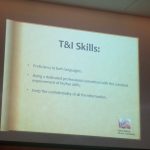
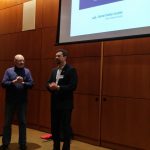
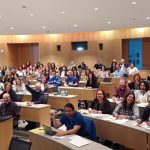
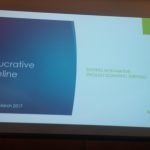
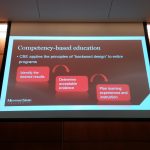
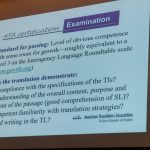
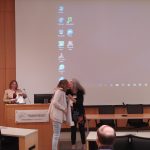
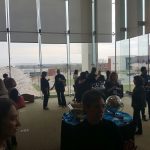
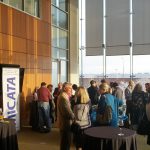
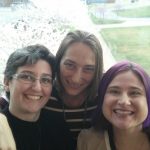
Leave a Reply